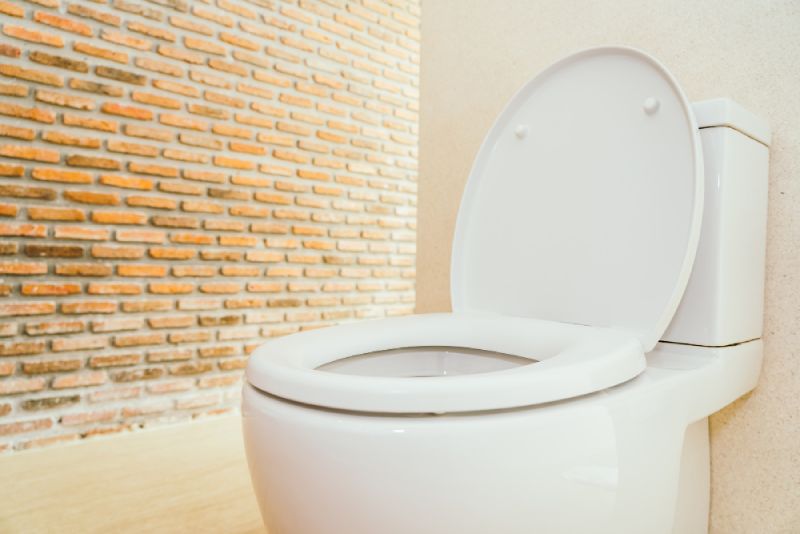It’s a familiar scenario for many: you enjoy your morning cup of coffee, and soon after, you find yourself making a beeline for the bathroom. But why does coffee make you poop? Let’s investigate the science behind this intriguing—and sometimes inconvenient—phenomenon.
Unmasking the Coffee Poop Phenomenon
Many factors contribute to why coffee can have such a potent effect on digestion. Here are some of the key players:
Caffeine: A Natural Stimulant
Caffeine, the primary stimulant in coffee, is often blamed for coffee’s laxative effects. Caffeine stimulates muscle contractions in the large intestine, which are similar to the contractions that occur after a meal. This activity can promote a bowel movement.
Gastrin: Aiding Digestion
Drinking coffee leads to the release of gastrin, a hormone produced within the stomach. Gastrin is known to promote secretion of gastric acid, which helps break down food in the stomach. It also encourages movement of the intestines, which can lead to a bowel movement.
Chlorogenic Acids: Increasing Motility
Coffee is rich in chlorogenic acids, compounds that are known to increase stomach acid levels. These acids can promote increased motility—the contraction of the muscles that propel contents in the gastrointestinal tract—leading to an urge to defecate.
Not Just Caffeine: Decaf and Digestion
Interestingly, even decaffeinated coffee can stimulate the need to defecate in some people. This suggests that other factors, such as the aforementioned gastrin and chlorogenic acids, also play a significant role in coffee’s laxative effects.
Individual Differences
Not everyone needs to rush to the restroom after drinking coffee. Individual differences greatly influence coffee’s effects on digestion. Factors like genetics, tolerance to caffeine, the health of your digestive system, and even the type of coffee you drink can all impact how coffee affects your bowel movements.
Health Implications: Is It Bad?
“The bowel-stimulating quality of coffee is not necessarily a bad thing.”
For most people, the bowel-stimulating effect of coffee is entirely harmless. In fact, for individuals suffering from constipation, a cup of coffee might help to alleviate their symptoms. However, for people with certain health conditions—like irritable bowel syndrome or Crohn’s disease—coffee’s effects could exacerbate their symptoms.
When to Seek Medical Advice
If drinking coffee—or any other food or beverage—causes severe or persistent digestive upset, it’s a good idea to consult with a healthcare professional. They can help identify the cause and suggest dietary modifications, if necessary.
Conclusion: Coffee and Your Digestive System
So, why does coffee make you poop? The answer lies in a combination of factors: caffeine’s stimulant properties, the release of gastrin, and the presence of chlorogenic acids in coffee. These elements together stimulate muscle contractions in the gut and increase gastric acid secretion, speeding up the digestion process.
“Understanding the effects of coffee on your body can help you make informed decisions about your coffee consumption.”
Whether you view coffee’s laxative effects as a pro or a con, understanding the impact of coffee on your body can help you make more informed decisions about your daily coffee routine. Remember, everyone’s body reacts differently to foods and beverages, so it’s essential to pay attention to how yours responds to coffee.
Moderation is Key
While a cup of coffee can be a delightful way to start your day, like with any food or drink, moderation is key. Regularly consuming large quantities of coffee can lead to digestive issues, among other health concerns.
Embrace Your Coffee Ritual
Coffee, for many, is more than just a drink—it’s a ritual. Whether it’s the process of brewing, the aroma that fills the room, or the initial sip, each step contributes to a routine that brings comfort and enjoyment.
Enjoy Your Brew!
So, if coffee is a cherished part of your day and doesn’t cause you any discomfort, there’s no need to worry about its bowel-stimulating effects. However, if you find that your daily brew is causing you distress, it might be worth exploring other options or adjusting your intake.
“Coffee is a beloved ritual for many. Understanding its effects on your body can help you enjoy it to its fullest.”
In conclusion, coffee’s ability to induce a bathroom break is due to a mixture of its unique properties, including its caffeine content, the production of gastrin, and chlorogenic acids. Individual responses can vary widely, but for most, this effect is harmless. As long as you enjoy your coffee and it doesn’t cause any discomfort, feel free to continue your coffee ritual without worry.
Here’s to enjoying your next cup!



